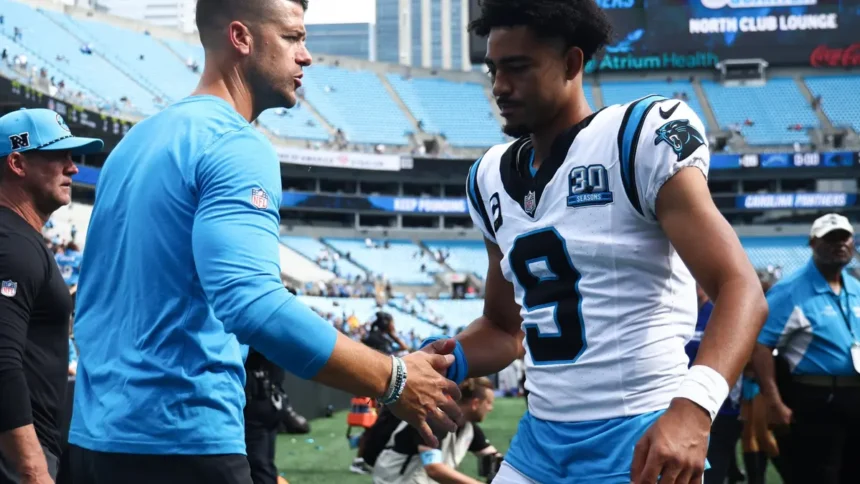Ten quarterbacks have been chosen with the first overall pick since 2011 (the year the rookie wage scale began), and between them, they have won zero Super Bowls. The only former No. 1 overall pick to earn an MVP Award in that time frame is Cam Newton. Though those figures may come as a shock to draftniks who gush about the franchise quarterback prospects’ revolutionary potential during the pre-draft phase, the harsh reality of QB1 prospects’ struggles should force the NFL coaching and scouting communities to reconsider how young quarterbacks are assessed and developed in the league.
Team builders should perform an autopsy on the Bryce Young experience to see what lessons can be learned from the mistakes of another No. 1 overall pick. From the qualities general managers, scouts, and coaches covet to placing the ideal supporting cast around a potential franchise quarterback to adequately preparing a young quarterback to play.
Prior to delving into the Panthers’ shortcomings in developing Young, it is imperative to examine his scouting report and the expectations around his performance in the NFL.
Young was a 5-foot-10, 200-pound dropback passer who was expected to be an anomaly because of his high football IQ and cognitive abilities. While the majority of short quarterbacks may make up for their height by incredible agility, speed, or quickness.







